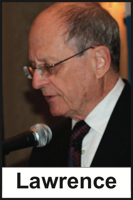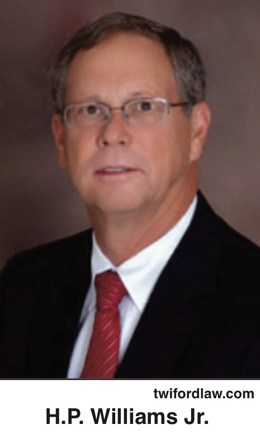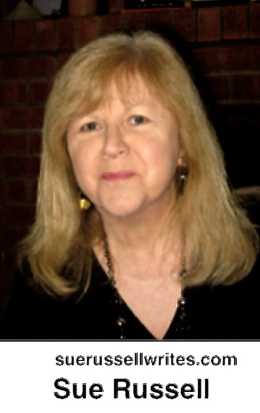Rascals case in brief
In the beginning, in 1989, more than 90 children at the Little Rascals Day Care Center in Edenton, North Carolina, accused a total of 20 adults with 429 instances of sexual abuse over a three-year period. It may have all begun with one parent’s complaint about punishment given her child.
Among the alleged perpetrators: the sheriff and mayor. But prosecutors would charge only Robin Byrum, Darlene Harris, Elizabeth “Betsy” Kelly, Robert “Bob” Kelly, Willard Scott Privott, Shelley Stone and Dawn Wilson – the Edenton 7.
Along with sodomy and beatings, allegations included a baby killed with a handgun, a child being hung upside down from a tree and being set on fire and countless other fantastic incidents involving spaceships, hot air balloons, pirate ships and trained sharks.
By the time prosecutors dropped the last charges in 1997, Little Rascals had become North Carolina’s longest and most costly criminal trial. Prosecutors kept defendants jailed in hopes at least one would turn against their supposed co-conspirators. Remarkably, none did. Another shameful record: Five defendants had to wait longer to face their accusers in court than anyone else in North Carolina history.
Between 1991 and 1997, Ofra Bikel produced three extraordinary episodes on the Little Rascals case for the PBS series “Frontline.” Although “Innocence Lost” did not deter prosecutors, it exposed their tactics and fostered nationwide skepticism and dismay.
With each passing year, the absurdity of the Little Rascals charges has become more obvious. But no admission of error has ever come from prosecutors, police, interviewers or parents. This site is devoted to the issues raised by this case.
On Facebook
Click for earlier Facebook posts archived on this site
Click to go to
Today’s random selection from the Little Rascals Day Care archives….
Click for earlier Facebook posts archived on this site
Click to go to
Today’s random selection from the Little Rascals Day Care archives….
Chaplain writes memoir about supporting defendants
Nov. 21, 2011
 Raymond Lawrence, the New York City chaplain who founded the Committee for Support of the Edenton Seven, was an attentive and often appalled observer at Bob Kelly’s trial. This passage is excerpted from a memoir now posted in its entirety on the Bookshelf:
Raymond Lawrence, the New York City chaplain who founded the Committee for Support of the Edenton Seven, was an attentive and often appalled observer at Bob Kelly’s trial. This passage is excerpted from a memoir now posted in its entirety on the Bookshelf:
“Among the more obscene performances I witnessed by the prosecution was a long argument that Robert Kelly had had vaginal intercourse with a five-year-old girl.
“On a screen about four feet square the prosecutor displayed a color slide the girl’s genitalia, with two adult thumbs shown pulling back the labia to display the hymen and vaginal opening. The hymen appeared fully intact, covering most of the vaginal opening. The prosecutor thus spent what I recall as hours arguing that the stretch marks in the hymen were evidence of adult penile penetration.
“I wondered why the defense attorney did not rise up and ask if this were Alice in Wonderland…. It was as if I had entered an alternate universe.”
Courts reluctantly turn to Little Rascals DA
 May 27, 2014
May 27, 2014
“The state court system says it hired a local defense attorney to prosecute three murder suspects because the current district attorney had conflicts of interest in all three cases and no other prosecutors were available.
“The N.C. Administrative Office of the Courts hired H. P. Williams Jr. as a special prosecutor on March 27 after attempts to find a prosecutor from either the state Attorney General’s Office or another district attorney’s office failed….”
– From “Williams to prosecute 2 more murder cases” by William F. West in The (paywalled) Daily Advance (May 24)
Yes, that’s the same H.P. Williams Jr. who as district attorney prosecuted the Edenton Seven, who as an ostensible expert appeared at conferences on “satanic ritual abuse” alongside “cult cop” Robert J. Simandl and Civia Tamarkin of Believe the Children, who as a candidate for reelection received only 41 percent of the vote and who after returning to private practice emphatically declined to discuss the Little Rascals case.
Yes, that H.P. Williams Jr….
McMartin Preschool acquittal did little to stem spread of hysteria

Andersen
May 18, 2018
“Despite the acquittal in [the McMartin Preschool case], the hysteria kept raging there and nationally; mainstream news still gave it credence, police still made arrests, prosecutors still prosecuted, and true believers among psychologists and psychiatrists (and their clients) still believed and proselytized, often with a government imprimatur….
“In a small town in Tidewater North Carolina, children testified that a satanic cult operating a day care center had ritually abused them – and taken them in hot-air balloons to outer space and on a boat into the Atlantic where newborns were fed to sharks; several people were sentenced to long prison terms and served time before their convictions were overturned or charges dismissed.”
– From “Fantasyland: How America Went Haywire: A 500-Year History” by Kurt Andersen (2017)
The ripples from McMartin were even more pronounced in Edenton, after prosecutors brought back from California a crucial lesson: Conceal, obscure or destroy the therapists’ notes that would reveal how relentlessly the child-witnesses had been manipulated.
![]()
Are mistaken prosecutors silenced by shame?
 Jan. 31, 2015
Jan. 31, 2015
“ ‘You need to try to rectify whatever error you made,’ says Santa Clara County, California, Special Assistant District Attorney David Angel. ‘But it needs to really shift from this kind of highly moralistic, punitive view. Maybe it’s a cause for embarrassment, but it’s not a cause for shame.’
“He believes prosecutors have drawn the short straw in language, noting that defense attorneys who err are called ‘ineffective’ and judges are ‘reversed,’ while prosecutorial error alone is labeled ‘misconduct,’ with all the attendant negative connotations.
“Angel believes that most prosecutors are willing to admit to mistakes but that ‘people are very hesitant to admit to something that’s called “misconduct,” because it makes you feel like you did something morally wrong.’ ”
– From “Why can’t law enforcement admit their mistakes?” by Sue Russell at Pacific Standard (via Salon, Oct. 21, 2012)
The concept becomes trickier, however, the longer prosecutors cling to their fallacious and costly narratives. At some point – oh, let’s say 25 years later – might “mistakes” have toxified into “misconduct”?











0 CommentsComment on Facebook